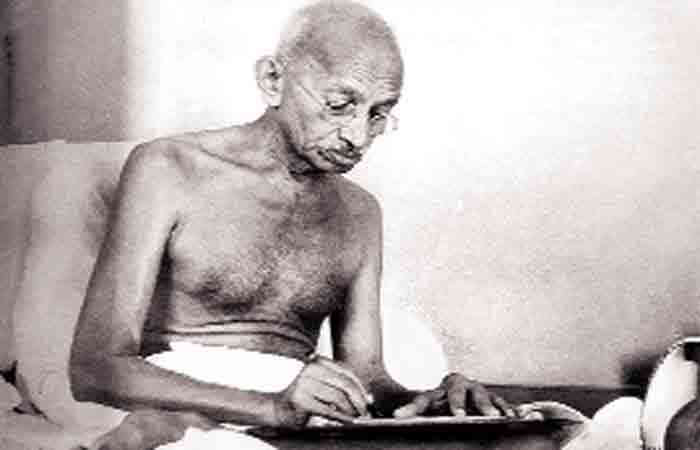
Mohandas Karamchand Gandhi
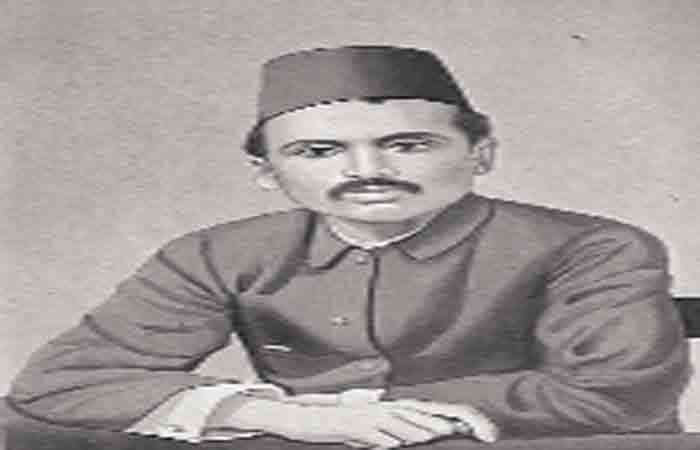
Ranjitram Mehta
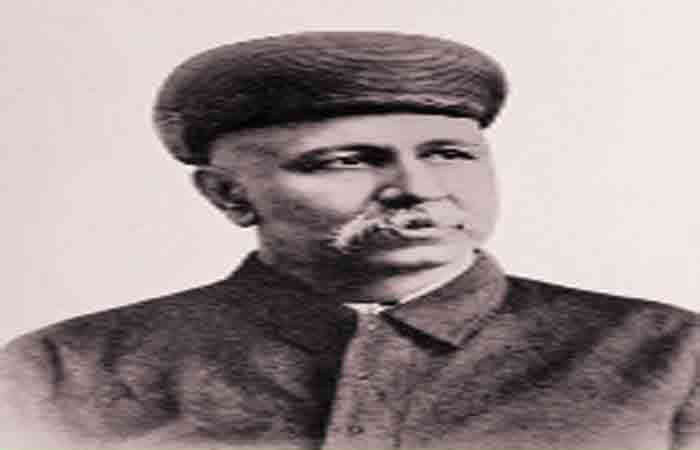
Govardhandas Tripathi
Ranjitram Mehta and Govardhandas Tripathi - Founders of the Council

Anandashankar Dhruv
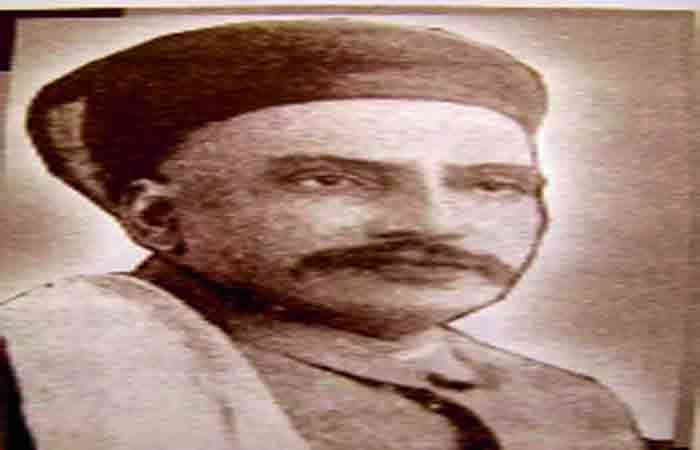
Ambalal Desai
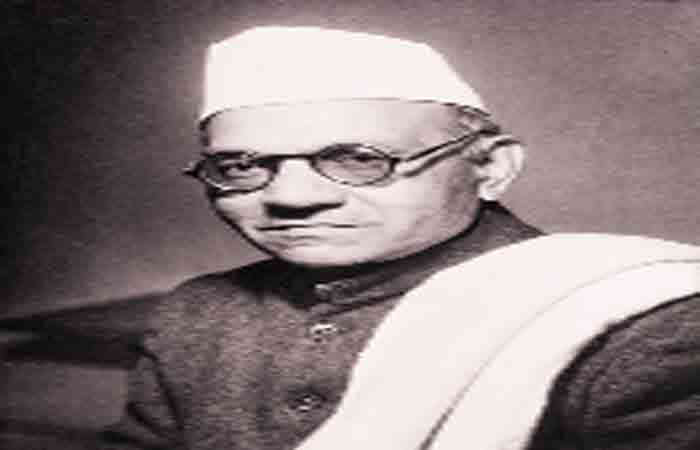
Rasiklal Parikh
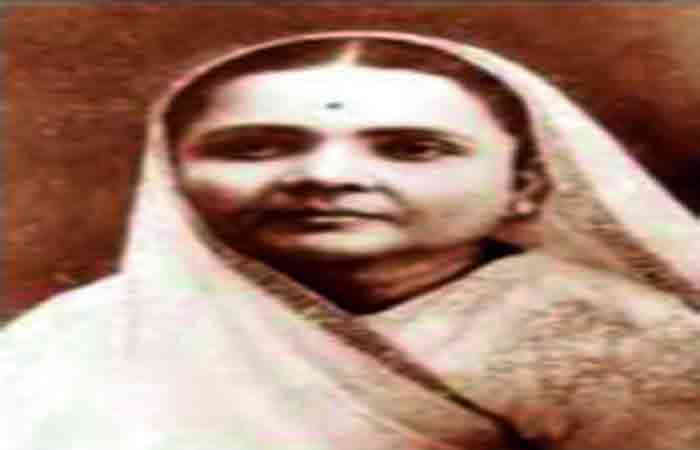
Vidyabahen Nilkanth
Gujarat's first line educators - social reformers also did significant work as president of Sahitya Parishad
The history of Gu Jarati Sahitya Parishad is long. It was established in 1908. Its purpose was not only to cultivate Gujarati literature, but also to make Gujarati public life more advanced, polite, humorous and liberal by combining literature with public life. Its early founders like Ranjitram Bababhai Mehta and Govardhandas Madhavram Tripathi did not see the Gujarati Sahitya Parishad only as an institution of literature and writers.
It was also seen as a public body of dependent Gujarat and India and for the same reason the council Ambalal Sakarlal Desai (1905). Kamalashankar Pranshankar Trivedi (18), Anandashankar Bapubhai Dhruv (19), Bhulabhai Jivanbhai Desai (191), Mohandas Karamchand Gandhi (19), Vidyabahen Ramanbhai Nilkanth (19), Harsiddhabhai Vajubhai Divetila (18) and Chhodal (18) Elected as president of men and women who could not be considered literary creators in their natural form. That is probably why Mohandas Gandhi lost the election of the President of the Sahitya Parishad in 1917 and Hargovinddas Dwarkadas Kotawala, a veteran writer and social reformer, was elected as the President of the Parishad.
Of course Gandhiji was a social reformer, a journalist and an advocate of the abolition of untouchability. Then the council may have seen its mistake, or it may have considered the autobiography 'Truth Experiments' published by Gandhiji as a 'great' literary creation. In any case, the council unanimously 'elected' Gandhiji as the 13th president.
Earlier, great literary creators like Ramanbhai Nilkanth and Narasimha Rao Dwivedi had badly defeated Gandhiji by calling him an "outsider". Gandhiji did not talk about topics like poetry, novels, plays, history of literature, Gujarati grammar, chemistry like well-known literary creators.
Speaking of literary creations that the common man can understand and enjoy, he said in clear words: "Now my speech. What can I say to the literate. Sir Chinubhai has told me that I am not literate or not a writer but I am the Chancellor of the University, I am the one who prepares the spelling dictionary . But the priest of non-violence whips? I don't have a whip.
I am very sorry that Narasimha Rao is not here today. My relationship with him has grown steadily. If he was here, I would be very happy today. And Ramanbhai is not even in the body today. I told him that he did not know what language Koshyo used to run Kos on my well. He does not realize that he is speaking. What should I call him? If there is a poet, he goes to her.
Munshi is a novelist, he can't see. He who is a wonderful artist can go to her and explain to her. Two words are criticized here, two words are criticized there and it is said that the one who can swallow. For whom will we create literature? For Kasturbhai & Co., or for Ambalalbhai or for Sir Chinubhai? He has money, so he can keep as many writers as he wants, he can build as many libraries as he wants. But what about those cells? "
In this way Gandhiji showed a new direction to Gujarati writers in a few strict words. Some writers wondered, "Where did you call this?"
Earlier, Ambalal Sakarlal Desai (18-1917) also gave a wide meaning to literature in 1908. Ambalal was not a writer. He was Gujarat's foremost educator, social reformer, liberal, and rationalist politician and economic thinker before the advent of Gandhiji. He connected literature with public life. Ambalal explained the importance of ideas derived from non-literary disciplines in literary creation. He spoke to the President about 'mass education':
"Educating the masses is as much a confirmation of the rise of our literature, so there is no one way to meet it ... Another thought comes to my mind in this regard. We all wish that our Islamic brethren would be with us and help in the distribution of Gurjari language.
They still can't read our Sanskrit books. In summary, if the issue of avoiding Persian words becomes more prevalent, there will be an opportunity for two types of literature to run in Gujarat: (1) that Muslim brothers and common people understand and (2) those who are educated in Sanskrit. Such a result may not be to the liking of literary lovers ... Hindu-Muslims are the left-right eyes of Hind. God has used his intellect to put it together, it is not uncommon now. "
Bhulabhai Desai said from the presidency in 1931:
"The world of literature is no different from the world of folk, and should not be, and if it is, that world is useless and hypocritical. He does not have the right to make such a claim in the name of Gujarat and Gujarati literature, even if he gives the names of eras or generations to a short period of two to five years. Languages that do not have a lively relationship with the thinking and behavior of the people are lame, weak and useless. Language is what all people understand. "However, some great writers have written," I do not write. I write what I create as my Brahmanical God suggests to me. I'm just an occasion. "
Harsiddhabhai Dwivedi said in 1952:
"The merchant mind of Gujarat has introduced an evil element in its literature. It should never be forgotten that literature is not only for earning money but also for nourishing the society by giving it a high quality mental food. Examples of commercial writing and publishing are often seen. Writing or publishing literature that is in demand by the people has economic benefits, but the goal of literature is often not preserved. Such literature never survives. "
In short, the non-literary presidents of the Gujarati Sahitya Parishad opened up important intellectual dimensions targeting various disciplines as well as human life experiences. There is not a single academic discipline in the world today that is "spontaneous". Literature, science, economics, sociology, ideological values, politics complement each other and are also associated with today's digital technology.
The purpose of this article is to refer to the report published in "Gujarat Samachar" on September 3, 2020, "Election of Gujarati Sahitya Parishad: Tripankhiyo Jung for the first time in the history of 115 years". In it, three candidates for the presidency have answered the following questions: (1) Why do you want to be president? (2) What will you do to help the new generation become more interested in literature? (2) How do you see both the rivals? One of the rivals has written: "This election is not of the Press Union, it is of the Sahitya Parishad." However, the atmosphere of today's election is "Kon Banega Crorepati" on TV. Is like a serial. The real test is to carry forward the folk life of Gujarat by providing innovative oxygen to suit today's times in an old "institution".
Comments
Post a Comment
What you think give us your idea about this article we publish your words on our site